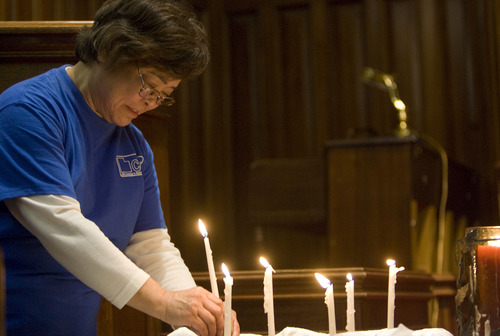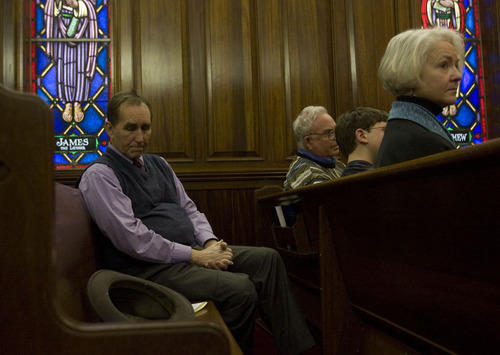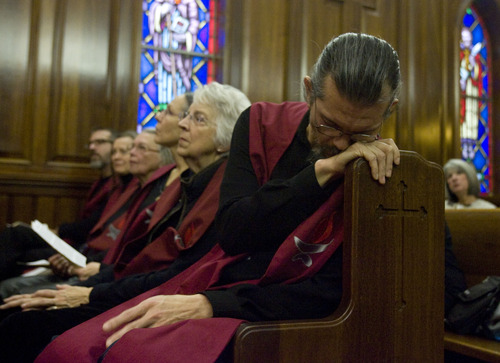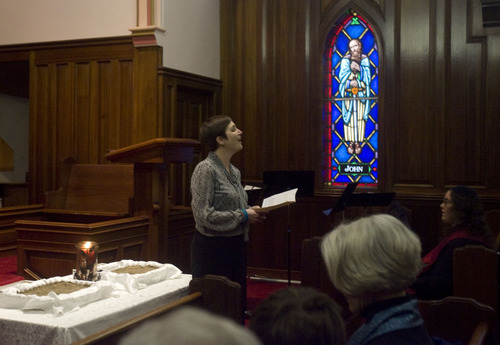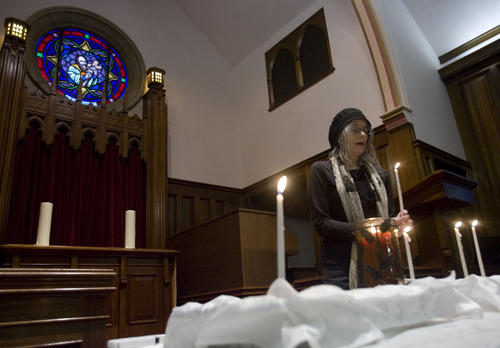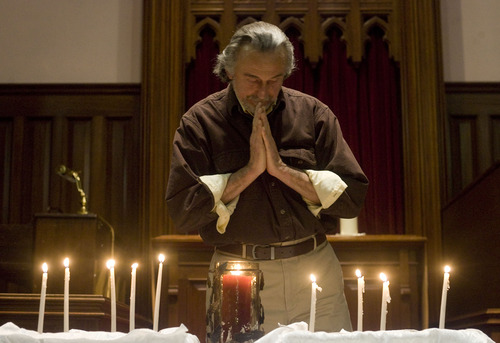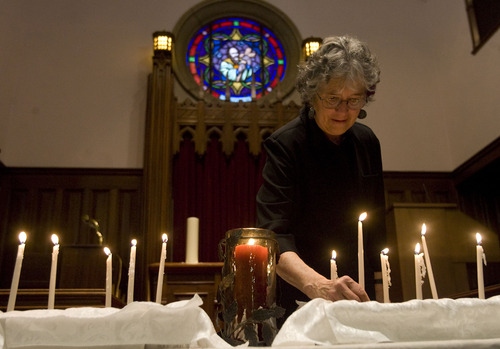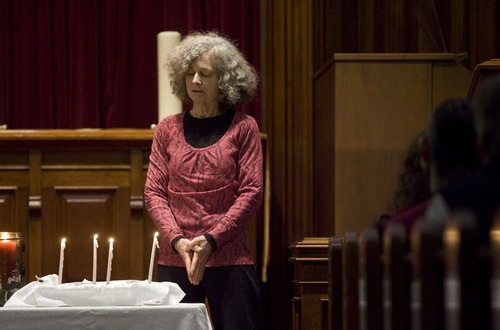This is an archived article that was published on sltrib.com in 2013, and information in the article may be outdated. It is provided only for personal research purposes and may not be reprinted.
The 62nd anniversary of the first nuclear weapons test in the Nevada desert drew about 70 Utahns of varied faiths Sunday to First Baptist Church in Salt Lake City to remember those affected by decades of fallout and to ensure that "it must never happen again."
It was the second such day of remembrance organized by the Utah Campaign to Abolish Nuclear Weapons (UCAN), a group pushing for the United States to ratify the international Comprehensive Nuclear Test Ban Treaty (CTBT).
David Smith, a retired neurologist, stood at the front of the sanctuary Sunday and struggled with a flood of emotions. In 1996, Smith traveled to Kiev, the capital of Ukraine, to study the effects of the 1986 nuclear power plant catastrophe in Chernobyl.
"They didn't allow anyone near Chernobyl until 10 years later," Smith said. By chance, he was able to interview the doctor who headed up the nearby hospital.
"I'll light a candle for all the people who helped those victims," Smith said, noting that in a few weeks he and his wife plan to travel to Norway to organize a march against nuclear weapons.
Salt Lake City resident Ali Sadler reminisced about stories her grandparents would share of raising a young family in St. George, which was downwind of the Nevada tests.
"There was a test going on and the message came across the radio saying they should go inside. So my grandmother went outside and told her husband," Sadler said. "And he told her the government would never do anything to hurt them. So I light this candle for that to be said again — and for it to be true."
The United States flexed its nuclear might against Hiroshima and Nagasaki, Japan, in August 1945, aiming to end WWII. The U.S. went on to test more than 1,000 nuclear weapons, with the final detonation occurring Sept. 23, 1992.
According to Utah History to Go, Iron County sheep ranchers were the first to notice the ill effects of the early 1950s testing that government officials promised had been safely conducted. Thousands of sheep exhibited blisters and burns, and many gave birth to deformed or stillborn lambs.
By the late 1950s and early 1960s, clusters of rare childhood leukemia were appearing in children, and some who lived downwind from the test site were blaming radioactive fallout for infertility, miscarriages and birth defects.
However, the government continued to deny any direct connection for many years, with courts ruling in their favor until 1986. In 1990, Congress passed the Radiation Exposure Compensation Act, signed into law by President George H.W. Bush. The law provides compensation to people who suffered certain cancers due to radiation exposure from working in the uranium industry, at the testing site, or downwind from it.
According to the United Nations Office for Disarmament Affairs, more than three dozen nations have ratified the Comprehensive Nuclear Test Ban Treaty. The U.S. is not among them, along with China, Egypt, India, Iran, Israel, North Korea or Pakistan.
Tomoko Moses, speaking at Sunday's service, recounted her childhood in Japan in the 1950s. Her family had no television, Moses said, so they learned of the Nevada nuclear tests from news reels shown at a nearby movie theater.
"My father said that the U.S. was a very powerful country that must be very big because no one got killed from the nuclear testing," Moses said. "When I got older, I came to Utah and saw all the people still suffering."
It was then that she learned that "America is not that big after all."
Rabbi Ilana Schwartzman, who leads Salt Lake City's Congregation Kol Ami, also spoke at the remembrance.
"Yesterday is past, it cannot tell us what tomorrow will bring," Schwartzman said. "If there is goodness at the heart of all life, then its power — like the power of evil — is real. Which shall prevail? Moment by moment we choose between them."
Twitter: @catmck


